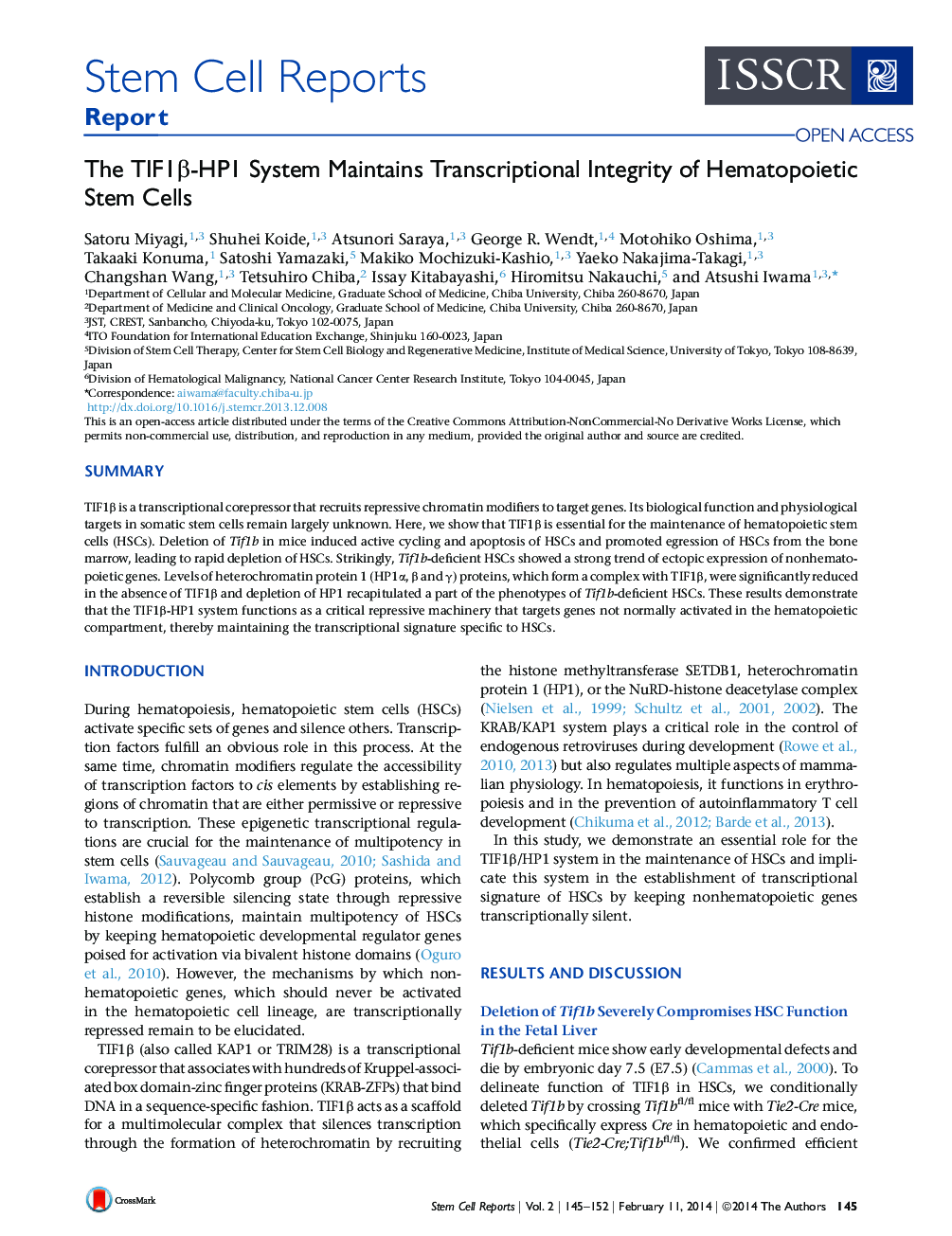| Article ID | Journal | Published Year | Pages | File Type |
|---|---|---|---|---|
| 2093459 | Stem Cell Reports | 2014 | 8 Pages |
•Deletion of Tif1b in mice causes rapid depletion of HSCs•Loss of TIF1β leads to reduction in HP1 proteins in HSCs•The TIF1β-HP1 system represses nonhematopoietic genes in HSCs•The TIF1β-HP1 system helps maintain the transcriptional integrity of HSCs
SummaryTIF1β is a transcriptional corepressor that recruits repressive chromatin modifiers to target genes. Its biological function and physiological targets in somatic stem cells remain largely unknown. Here, we show that TIF1β is essential for the maintenance of hematopoietic stem cells (HSCs). Deletion of Tif1b in mice induced active cycling and apoptosis of HSCs and promoted egression of HSCs from the bone marrow, leading to rapid depletion of HSCs. Strikingly, Tif1b-deficient HSCs showed a strong trend of ectopic expression of nonhematopoietic genes. Levels of heterochromatin protein 1 (HP1α, β and γ) proteins, which form a complex with TIF1β, were significantly reduced in the absence of TIF1β and depletion of HP1 recapitulated a part of the phenotypes of Tif1b-deficient HSCs. These results demonstrate that the TIF1β-HP1 system functions as a critical repressive machinery that targets genes not normally activated in the hematopoietic compartment, thereby maintaining the transcriptional signature specific to HSCs.
